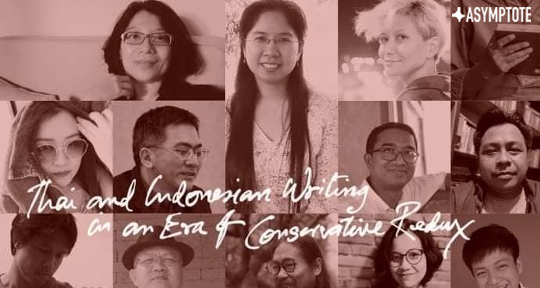This week, our editors from around the globe report on publishing trends in India, the memorialization of the author Wat Wanlayangkoon in Thailand, and an exciting new development in Chinese to English interpretive translation, led by the Accent Society. Read on to find out more!
Suhasini Patni, Editor-at-Large, reporting from India
Temperatures are soaring and the country is experiencing grueling heatwaves. Indians have taken to social media to critique the Modi government’s negligent response to the climate crisis. Many are also sharing their memories of the devastating and nightmarish second wave of the coronavirus that led to numerous deaths in the country this time last year.
The pro-Hindutva, right-wing Bhartiya Janta Party is known to instigate violence, especially against Muslims, in the name of the Hindu religion. In the latest reform to eradicate voices of dissent, verses by Urdu poet Faiz Ahmed Faiz have been dropped from the CBSE (Central Board of Secondary Education) class 10 textbook. Faiz, one of the most celebrated Urdu poets and a nominee for the Nobel Prize in Literature, addressed the issues of military dictatorships and tyranny in Pakistan. According to Scroll.in, “the verses were part of the ‘Religion, Communalism and Politics—Communalism, Secular State’ segment of the National Council of Educational Research and Training’s textbook called “Democratic Politics II.” The two poems are “Let Us Walk in the Market in Shackles” and “Upon Returning from Dhaka.”
In 2021, the New India Foundation (NIF) announced its inaugural grant for writing books relating to India’s history. The three winners of the NIF Translation Fellowship were chosen from ten Indian languages and each awarded a stipend of INR 6 lakhs for a period of six months with mentorship opportunities as well as publishing and editorial support. The three winners are Venkateswar Ramaswamy (literary translator) and Amlan Biswas (statistician) who will translate Nirmal Bose’s Diaries 1946-47 from Bangla; NS Gundur (academician and literary historian) who will translate DR Nagaraj’s Allamaprabhu Mattu Shaiva Pratibhe from Kannada; and Rahul Sarwate (academician and historian) who will translate Sharad Patil’s Marxvad: Phule-Ambedkarvaad from Marathi. More can be read about the winners here.


